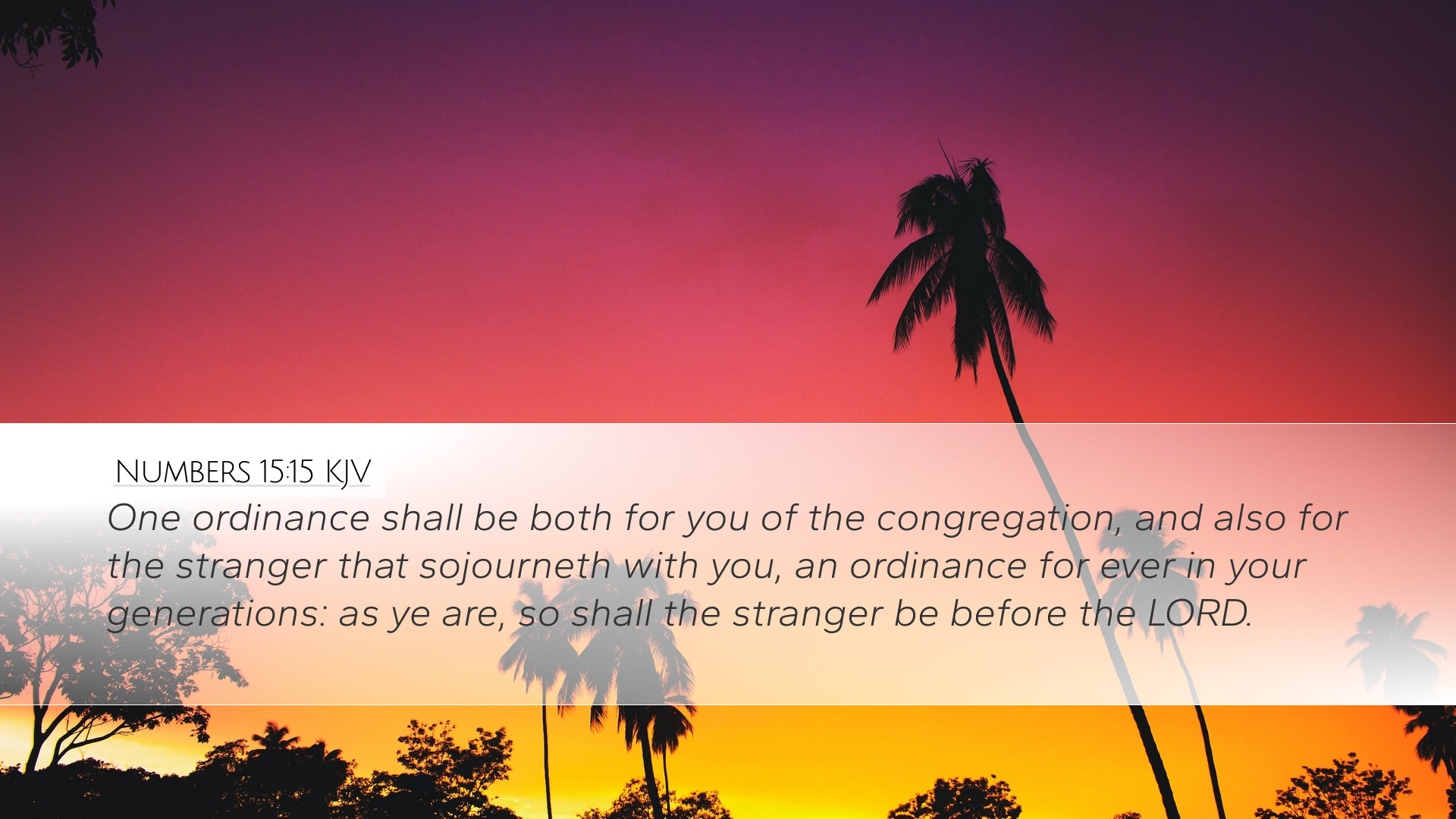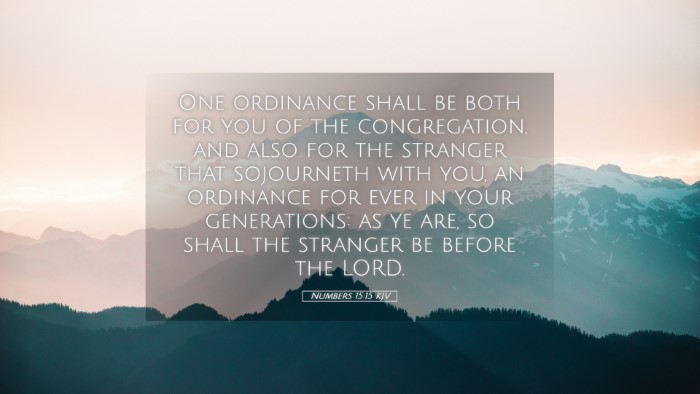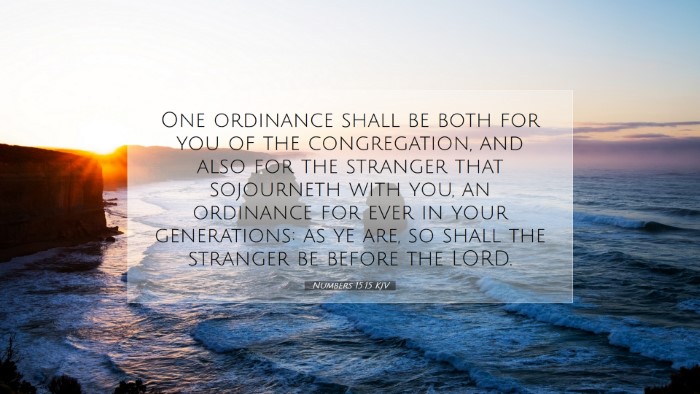Commentary on Numbers 15:15
Numbers 15:15 states: "As for the assembly, there shall be one statute for you and for the stranger who sojourns with you, a perpetual statute throughout your generations: you and the stranger shall be alike before the Lord." This verse highlights the unity and equality of all individuals before God, emphasizing the importance of inclusive worship within the community of Israel.
General Context of Numbers 15
The chapter of Numbers 15 deals with laws pertaining to sacrifices and offerings, emphasizing the seriousness of adhering to divine commands. Following the commandments is a vital part of Israel's identity and relationship with God. The command in verse 15 signifies a call for inclusivity in worship practices, extending the laws to both native Israelites and foreigners.
Theological Implications
This verse has profound theological implications, showcasing God’s desire for inclusive worship and community. In the biblical context, the "stranger" represents Gentiles or non-Israelites who wished to dwell among the Israelites, thereby incorporating themselves into the covenant community. The stipulation that there is "one statute" suggests that all are to be held to the same standards before God, which elevates the discussion of equality in the sight of God.
Insights from Matthew Henry
Matthew Henry observes that this verse signifies the divine intention for unity within the community of believers. He emphasizes that God's laws are not just for the Israelites but are also for anyone who chooses to live amongst them and seek God. Henry notes, "In the eyes of God, there is no distinction of nationality when it comes to the worship of the Almighty." This reinforces the idea that God’s love and grace are not confined by cultural or ethnic boundaries.
Insights from Albert Barnes
Albert Barnes elaborates on the notion of equality before the law. He asserts that the phrase "one statute for you and for the stranger" indicates a precursor to the New Testament understanding that in Christ, there are no distinctions among people based on their backgrounds. Barnes states, "This equality in the spiritual community foreshadows the universal reach of the Gospel, which will later be evident through the ministry of Jesus."
Insights from Adam Clarke
Adam Clarke provides an exegetical examination of the verse, discussing the implications of the term “stranger.” He denotes that the inclusion of the stranger indicates a significant theological principle: that all who seek to worship God sincerely are welcome and equal participants in divine grace. Clarke asserts that this establishes a foundation for future laws and practices within the church. He explains, "God's covenant is one of grace, extending beyond the ethnic confines of Israel, inviting all nations to partake in the blessings of His presence."
Application for Faith Communities
For contemporary faith communities, the implications of Numbers 15:15 are manifold. It encourages an understanding of hospitality and inclusivity within the church, calling believers to actively welcome those from diverse backgrounds. This inclusivity can manifest in various forms, such as communal worship, the sharing of resources, and engaging in outreach activities. The spirit of this passage serves as a reminder that the church exists as a unified body, transcending racial and cultural barriers.
Reflections for Pastoral Ministry
Pastors and spiritual leaders can draw from this text a call to cultivate inclusive practices within their congregations. This not only adheres to biblical principles but also addresses current societal divisions. Creating forums for dialogue and understanding among diverse church members can help reflect the unity that God desires. Pastors are encouraged to preach this message of unity and remembrance in missions, teaching congregants to see every individual as equally valued before God.
Educational Insights for Theologians and Scholars
Theologians may find this verse a basis for discussing the nature of God's covenant with humanity, extending beyond any singular ethnic identity. It serves as a paradigm for understanding the nature of God's love and grace, which invites all people to enter into a relationship with Him. Scholars are tasked with exploring how this inclusivity relates to contemporary ecclesiology and missiology, particularly as they seek to build bridges between various cultural groups within the church today.
Conclusion
Numbers 15:15 calls the readers of Scripture to examine their views of community and inclusiveness in worship. The insights from various public domain commentaries underscore the timeless truth of God's desire for unity among believers of all backgrounds. This verse acts as a bridge linking the Old Testament foundation of faith with the New Testament revelation of grace, inviting all into the family of God, equally and fully engaged in His love.


